
Walking Towards Independence: A Comprehensive Guide to Walkers for Seniors
Are you or a loved one in need of a walker to maintain independence and mobility? Look no further! This comprehensive guide will provide you with all the information you need to choose the perfect walker for seniors.
With a variety of options available, it's important to understand the different types of walkers and assess your specific mobility needs. Whether you require a standard walker, a rolling walker, or a walker with a seat, we've got you covered.
Additionally, sizing is crucial for optimal comfort and safety, so we'll help you choose the right size walker for your height and weight. Proper use and maintenance are also key to ensure your walker remains in excellent condition.
So, let's dive into this guide and discover how walkers can enhance your daily life and keep you moving with confidence.
Table of Contents
- Understanding Different Types of Walkers
- Assessing Your Mobility Needs
- Choosing the Right Size Walker
- Tips for Proper Use and Maintenance
- Conclusion
Understanding Different Types of Walkers
If you're a senior looking for a walker, it's important to understand the different types available to find the one that suits your needs best.
There are several options to choose from, including walking frames, three wheeled walkers, four wheeled walkers, and gutter arm walkers.
The type of walker you choose will depend on your activities, where you will be using it, the level of support you require, your confidence, and your funding sources.
It's also crucial to consider factors such as height, weight, base area, maneuverability, wheel design, hand grip design, arm support design, folding capability, and attachments when prescribing a walking frame.
Additionally, the walker should be adjustable in height and accommodate the shoes you wear.
By understanding the different types of walkers and considering these factors, you can make an informed decision and find the perfect walker to enhance your mobility and independence.
|
PQUIP Three Wheeled Walker with Basket PA340 |
Related: 3 Types of Mobility Aids to Help You Stay Mobile
Assessing Your Mobility Needs
Evaluate your mobility requirements by considering your balance, reliance on support, strength in your legs, joint health, stability, falls, and pain levels.
If you find yourself frequently relying on walls or furniture for support, experiencing weakness in your legs, or have had joint replacements or injuries, a walker may be the best option for you. Walkers provide full support in weight-bearing and are suitable for those with severe mobility problems or those recovering from surgery.
On the other hand, if your mobility issues are minimal and you primarily need assistance with weight-bearing and balance, a cane may be more appropriate. Canes are customizable to your height and style, compact and lightweight for travel, and can provide additional support for long-distance walking.
Consider your specific needs and preferences when choosing between a cane and a walker.
|
Compact Portable Lightweight Rollator |
Related: Guide to Choosing the Right Walking Aid for Mobility Support
Choosing the Right Size Walker
When it comes to selecting the perfect walker, finding the right size is crucial for optimal comfort and support. The walker should be adjusted to fit your arms comfortably, ensuring that your elbows are slightly bent and your wrists are at the correct height. This will help prevent strain and promote proper posture while using the walker.Additionally, the size of the walker should be suitable for your body type and height. A walker that is too tall or too short can lead to discomfort and potential falls. It's important to consult with a healthcare professional who can assist you in choosing the right size walker based on your specific needs and measurements.
Taking the time to find the perfect fit will greatly enhance your mobility and overall safety.
|
2-in-1 Walker Transport Chair Combination |
Heavy Duty Walker for Tall Users |
“Best thing I ever done buying the walker for my wife . So easy to use and if she gets tired easy for me to push her while she sits comfortably. Thank you for a great product and a fair price .
- KUYTIM A.|★★★★★
“Quick & effecient delivery time. I'm very satisfied with this 2-in-1 mobility aid (what a great design). However, I would have liked it to have softer rubber tyres & a locking mechanism for transporting.
- Helen H.|★★★★★
Related: 3 Reasons To Choose A Walker With Footrest For Elderly Care
Tips for Proper Use and Maintenance
Following these tips will help you get the most out of your walker and ensure its durability and your safety. Regular maintenance is crucial for optimal performance and longevity.
Make sure to check for wear or damage frequently, and replace any worn or damaged parts immediately with high-quality replacements. Keep your walker clean to prevent dirt and grime buildup, and don't forget to properly inflate and lubricate the wheels.
Test the brakes regularly to ensure your safety. When not in use, store your walker in a dry and cool place to prevent rust and corrosion. Remember to follow the manufacturer's guidelines for proper use, and avoid overloading or using the walker as a step stool.
By following these guidelines, you can maximize the lifespan of your walker and enjoy the support and stability it provides.
|
DRIVE Nitro Euro Style Outdoor Walker |
Conclusion
In conclusion, choosing the right walker for seniors is crucial for maintaining their mobility and independence. By understanding the different types of walkers available and assessing their specific needs, you can make an informed decision.
It's important to choose the right size walker that provides stability and support. Remember to use and maintain the walker properly to ensure its effectiveness and longevity.
With the right walker, seniors can confidently navigate their surroundings and enjoy an active lifestyle.
Shop for Best Walkers for Seniors
Share on Facebook:


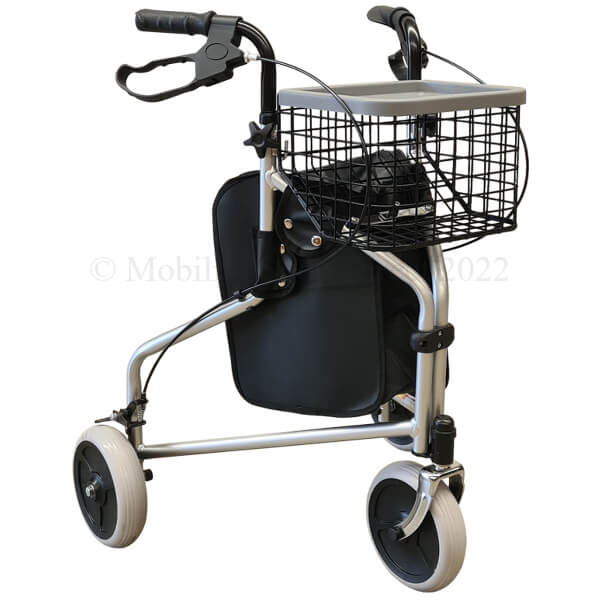
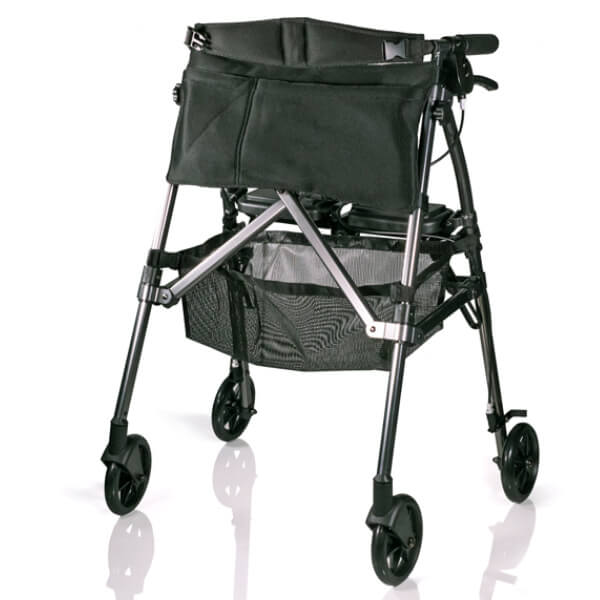
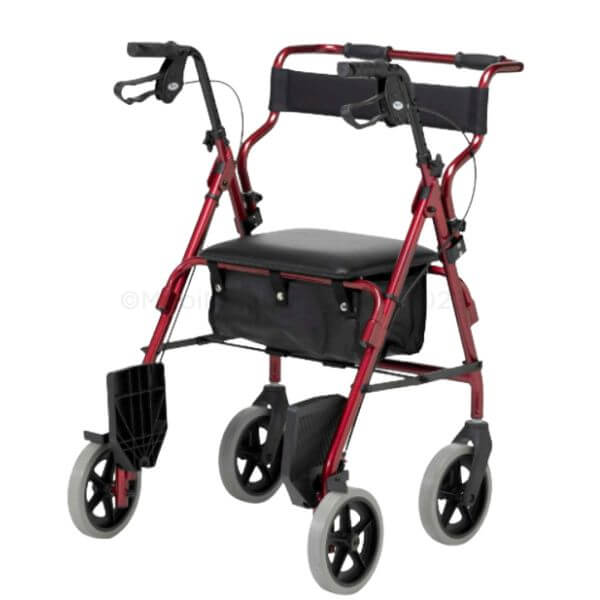
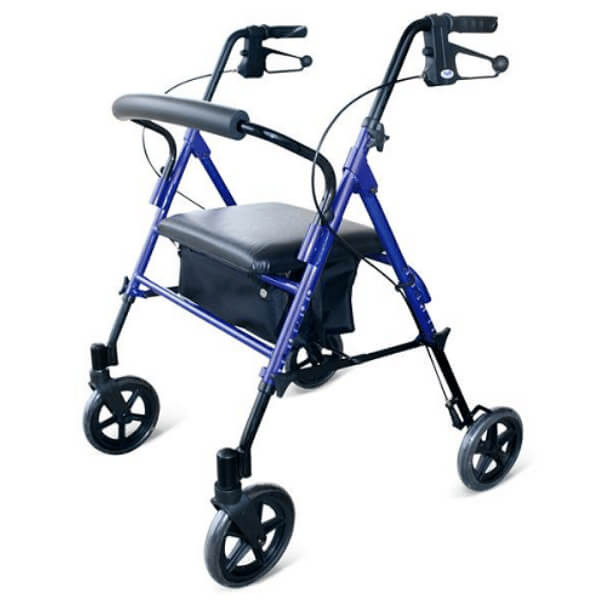
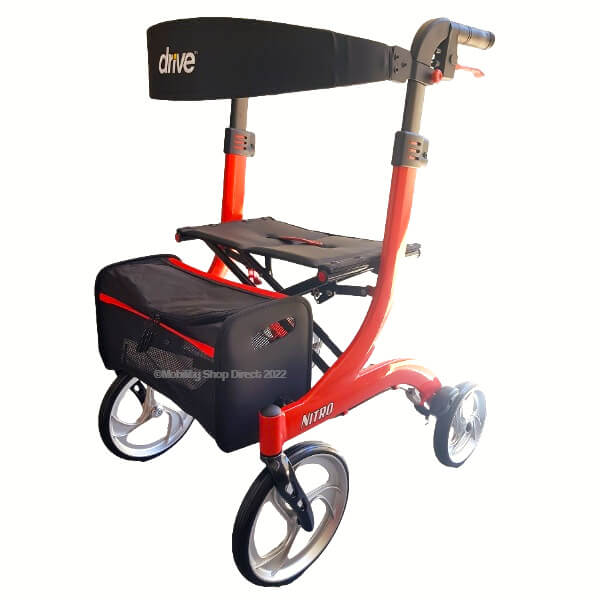

Leave a comment